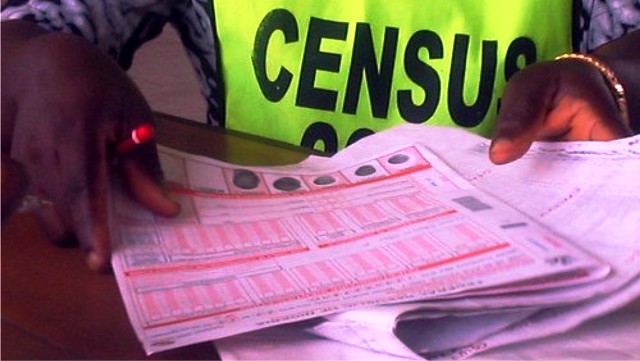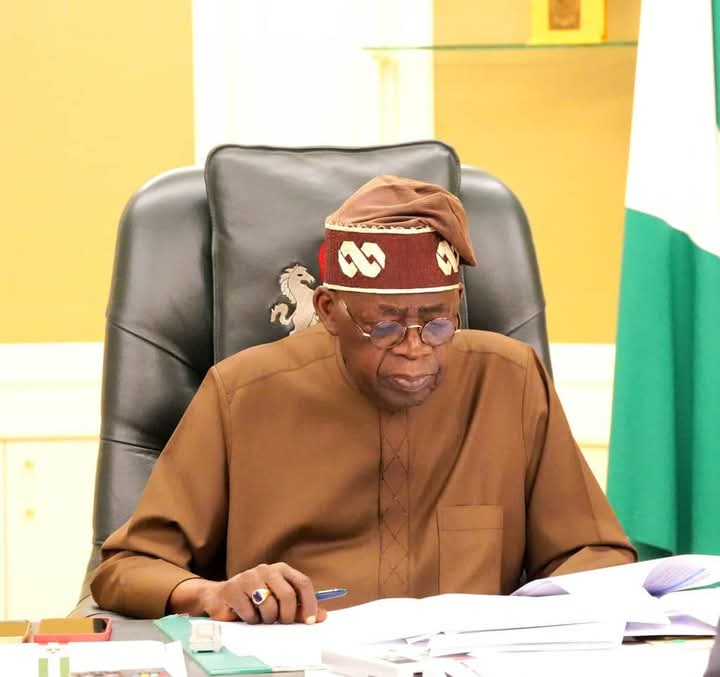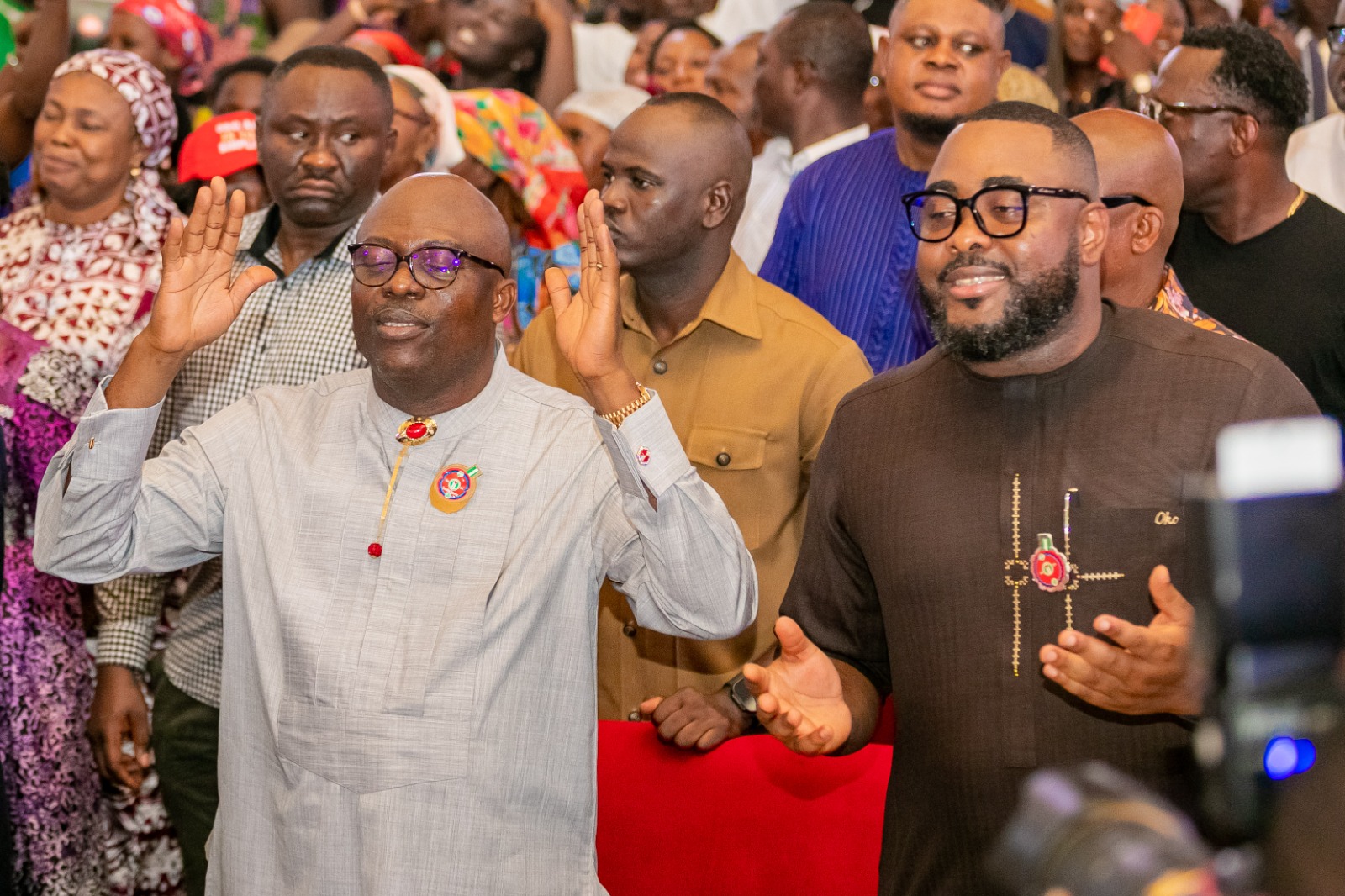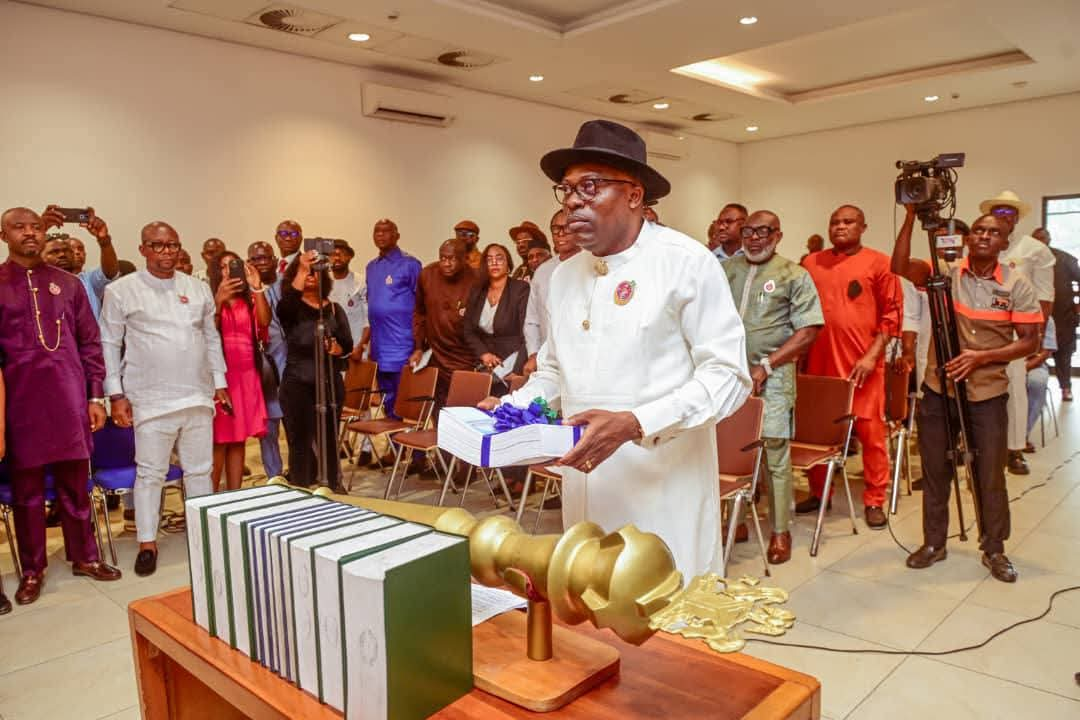Editorial
Census Put-Off: Thumbs Up For FG

The Population and Housing Census, which was initially scheduled for May 3–7, 2023, has been post-
poned indefinitely by President Muhammadu Buhari, following deliberations with select Ministers and Nasir Isa-Kwarra, Chairman of the National Population Commission (NPC). The resolve to delay the headcount was taken to stem prevailing circumstances that indicated an impending national crisis. This decision has transferred the responsibility to the President’s successor, hence, averting a potentially disastrous situation.
Despite the unwavering commitment of the NPC to execute the national project, it became apparent that both the agency and the relevant government bodies, as well as the citizens, were ill-prepared. It is a clear sign of astuteness for President Buhari to have thought it wise to avoid the risk of escalating this already precarious situation.
A new census for development planning was declared by Buhari, who asserted that the nation needed an updated one, given that the previous one took place 17 years ago in 2006. Nonetheless, the President did not specifically reference any potential hurdles that may be encountered in this undertaking. It is anticipated that the NPC will assume responsibility for this task.
In the editorial of this newspaper dated July 20, 2022, it was observed that the scheduled census for April 2023 was poorly timed owing to its proximity to the general election and the prevailing security challenges in the country. The census result could be negatively affected by various situations. Even the NPC’s pre-census tests were hindered in certain areas as a result of safety concerns in some states.
We had stated that if the current administration failed to conduct the census exercise at least a year before the end of their tenure, there would be no justification for rushing to conduct it just two months before their exit. As predicted, the postponement of the census and the reasons given have proven our argument to be correct.
Similarly, many stakeholders criticised the scheduled May date and urged for its delay because of poor timing. The decision to hold both nationwide elections and the census in an election year, with the challenges posed by their conduct and outcomes in the country, was deemed as notably imprudent. The Buhari’s administration has been berated for its apparent preoccupation with carrying out certain tasks instead of delegating them to the succeeding government.
The proposal has failed to garner inspiration among the Nigerian populace, given the plethora of intricate issues that surround it. The post-general election aftermath has thrown the country into a state of disarray, with stakeholders raising grave concerns about the conduct and outcome of the presidential, governorship, National Assembly and State Assembly elections.
Nigerians are still ruing their losses from the cash crunch that prevented them from accessing their money, causing widespread suffering. The police are struggling to contain the resulting unrest, and all law enforcement agencies are overwhelmed in their efforts to combat criminal activity, including insurgency, terrorism, banditry, kidnapping, armed robbery, cultism, and other crimes.
Many Nigerians across the country face daily attacks, eventuating in deaths, injuries, and kidnappings. These crimes are often motivated by purely criminal motives, leaving victims entirely on their own. The police are overburdened and often choose to ignore these incidents, only intervening when a high-profile individual is involved. This leaves some Nigerians at the mercy of their criminal abductors, relying solely on their relatives to assuage the situation.
Therefore, the NPC’s initial insistence on conducting a census during this period was over-ambitious and laid the foundation for another controversial headcount. Shoddy preparation typically leads to shoddy outcomes, as Nigerians have seen in past national assignments. It was clear that the commission was planning to fail.
For a successful national census, adequate preparation is crucial to ensure desired results and minimal hitches. The politicisation of the headcount has made it one of the thorniest issues in the country. However, if properly executed, the exercise can correct previous mistakes and provide a reliable population figure. A convivial environment must be created to achieve this.
Conducting a credible census requires total buy-in from all segments of the country. It should be a collaborative national assignment with the federal, the 36 states, and the 774 local government areas. Massive publicity and awareness campaigns from the grassroots upwards are required to ensure the success of the census. The NPC should return to the drawing board to guarantee that all obligatory steps are taken to achieve a credible headcount.
The task at hand poses seminal challenges. The expanse of the country’s road network is vast, with only a third of it being paved. The unpaved roads are prone to flooding, deterioration, and drought, making it arduous for census officials to reach all regions of the country promptly. Meticulous planning is necessary to overcome the major obstacles of funding and logistics.
The funding for the initiative needs to be properly addressed since the government’s proposal to establish a collective fund under the auspices of the United Nations Population Fund has encountered setbacks. Out of the N869 billion budgeted, only N291.5 billion has been disbursed, while another N327.2 billion approved has not yet been transferred to the NPC.
Buhari’s decision to postpone the headcount was judicious. It is incumbent upon the President-elect, Bola Ahmed Tinubu, to schedule a new date and implement measures to improve the process. The forthcoming count should be technology-driven, accurate, and reliable to gain the support of Nigerians.
Editorial
No To Hike In Telecom Tariffs

Nigerians are outraged by the Federal Government’s approval of a 50 per cent increase in telecommunications tariffs, with organised labour threatening to mobilise workers to boycott telecom services. The Nigeria Labour Congress (NLC) and the Trade Union Congress of Nigeria (TUC) have described the upcoming tariff as outrageous, lamenting that it will worsen the already harsh living conditions of workers and the masses.
Similarly, the Coalition of Northern Groups (CNG) rejected the hike, stating that it was ill-timed and did not take into consideration the struggles of Nigerians. The Human Rights Writers Association of Nigeria (HURIWA) also criticised the review, calling it an illegal, unconstitutional, and oppressive policy that undermines the fundamental rights and freedoms of Nigerians. It is a difficult moment for the industry.
Recall that the Nigerian Communications Commission (NCC) approved a 50 per cent increase in tariffs for telecom operators last Monday, instead of the 100 per cent raise that operators had requested. This decision quickly angered the consumers’ association, which criticised the government’s approval as not only punitive but also insensitive.
We wholeheartedly agree with the stance of labour and other groups on this very sensitive matter. We unequivocally condemn the 50 per cent increase in telecom tariffs. Though telecom operators cite higher operational costs and inflation as reasons for the hike, the timing and impact raise serious concerns in the current economic situation. It is a blatant attack on the well-being of the Nigerian worker and a betrayal of the people to corporate interests.
Telecommunication services are essential for daily communication, work, and access to information. However, the average Nigerian worker already spends approximately 10 per cent of their wages on telecom charges. For a worker earning the current minimum wage of N70,000, this means an increase from N7,000 to a staggering N10,500 per month or 15 per cent of their salary, a cost that is unsustainable.
This hike exemplifies the government’s apparent ease in prioritising corporate profits over citizens’ welfare. It is shocking that the government approved a 50 per cent tariff increase for telecom companies within a month, yet took nearly a year to approve the recent minimum wage for workers, despite the rising cost of living and inflation eroding purchasing power.
The questions are: When will the government stand up for the citizens it swore to protect? When will the National Assembly rise to its responsibility and hold the Executive accountable for policies that blatantly undermine the welfare of the majority? When will the common man finally heave a sigh of relief in Nigeria? We urge the government, the NCC, and the National Assembly to review the implementation of this ill-advised increase.
It is difficult to understand the state of mind of the managers of the nation’s economy. Sadly, these managers have alienated themselves from the reality of today. How can a government approve a 50 per cent hike in the tariff of telecom services when even the N70,000 minimum wage has been eroded by inflation, electricity tariff hikes, exorbitant fuel costs, transportation, and other social services?
Even if there is a need for an increase, why does it have to be 50 per cent? If, after dialogue, it is agreed that a raise is necessary, we should all consider a more reasonable increase rather than the 50 per cent hike. Fifty per cent is excessive and will only worsen the already harsh living conditions of workers, placing a heavier burden and more suffering on them and the general population.
The recognition of telecommunication services as essential components of modern society cannot be overstated. In an era characterised by rapid digital transformation, these services are fundamental not only for personal communication but also for facilitating broader socio-economic engagement. The proposed tariffs increase in the telecom sector raises critical concerns regarding equitable access to vital services that support communication, education, healthcare, and commerce.
In a democracy, the people should be the central focus of all government actions and policies. Every decision should aim to improve their quality of life. This plan must be carefully scrutinised with the welfare of citizens in mind. An increase in telecom tariffs will negatively impact many Nigerians, as the internet has become an essential tool for business, communication, and daily activities.
The Tide calls for the immediate suspension of the 50 per cent hike in tariffs. Instead, we recommend a more reasonable adjustment of a maximum of 10 per cent, which balances industry sustainability with the current economic realities in the country. We also demand that the NCC engages in genuine, inclusive consultations with consumer advocacy groups, civil society organisations, and other grassroots stakeholders before implementing any tariff adjustments.
Editorial
Hurray, Siminalayi Fubara Is 50!

Born on January 28, 1975, in Opobo Town, Mr. and Mrs. Joseph and Love Fubara welcomed their second of five children and first son. His father, a former soldier who completed an overseas training tour of duty, instilled in him a strong sense of discipline and dedication. His mother, a civil servant, taught him the importance of hard work and perseverance.
He received his primary education at Opobo Primary School and continued his studies at Comprehensive Secondary School in Opobo. His passion for numbers led him to pursue a degree in Accountancy at the then Rivers State University of Science and Technology, now known as Rivers State University.
Upon completion of his Bachelor’s degree, he pursued further education and obtained a Master of Business Administration (MBA) and a Master of Science (MSc) from the prestigious University of Port Harcourt in 2013 and 2016, respectively. Fubara’s dedication to his studies and his commitment to personal growth have shaped him into the accomplished individual he is today.
Sim, fondly called by his colleagues, started his career in 2003 as a principal accountant at the Rivers State Senior Secondary Schools Board. His dedication led to his promotion to Director of Finance and Accounts at the Government House in 2015. In March 2020, he was appointed Permanent Secretary and then became the Accountant-General of Rivers State on December 23, 2020.
His achievements are numerous, as he is a Knight of the St. Christopher (KSC) Order of the Church of Nigeria Anglican Communion. Additionally, he holds the prestigious traditional chieftaincy title of Amaopusenibo of Opobo Kingdom. The Governor’s commitment to family is evident through his marriage to Valerie Ibiere Fubara, with whom he shares three beautiful children.
Among Siminalayi’s other significant qualifications and accomplishments are his fellowship with the Nigerian Institute of Management and his fellowship with the Association of National Accountants of Nigeria (ANAN). He holds membership in the Chartered Institute of Forensic and Investigative Auditors. His impressive background has gained him the trust and support of the Peoples Democratic Party (PDP), leading to his victory in the party’s governorship primaries for the 2023 general elections.
Fubara embodies a leadership style defined by simplicity and compassion. He exhibits patience, confidence, and empathy in his interactions with those he serves. His humility and faith in God make him trustworthy. Representing the younger generation, Sim leads with the slogan “Consolidating and Continuing the New Rivers Vision,” focusing on developing infrastructure, healthcare, education, security, agriculture, and investment opportunities for Rivers State.
The bravery exhibited by His Excellency in resisting godfatherism has attracted respect from a wide array of Nigerians, Africans, and supporters of democracy around the world. He emphasises serving the interests of the people of Rivers over any godfather. His actions unify diverse groups in the state, promoting a sense of belonging among various ethnicities.
Our affable Governor exemplifies robust moral leadership rooted in his Christian beliefs. As a devoted Knight, he shows compassion and selflessness in his governance. He fosters an environment where all religions can peacefully coexist. Fubara sponsored Muslim pilgrims for the 2024 Hajj and personally wished them well, encouraging them to pray for the state and Nigeria. His religious tolerance has earned him respect among Nigerians who value coexistence.
Moreover, the Governor’s appealing physique and charming smile have garnered admiration from many Nigerians, who view physical beauty as a reflection of inner qualities. His tall stature has solidified his status as a revered figure, commanding respect across the nation. Fubara has shown dedication to women’s issues by initiating several programmes in collaboration with the Women Affairs Ministry and the Office of the First Lady, highlighting his strong commitment to women’s empowerment and gender equality.
Sir Fubara has focused on actively involving young people in his governance by launching entrepreneurship and training schemes, notably the Rivers State Youth Empowerment Scheme. His efforts to support youth have earned him the backing of many young Nigerians. Additionally, he provides scholarships and makes donations to orphanages, demonstrating his commitment to investing in education for the benefit of children in the state.
Known for his strong commitment to national unity, this Governor reaches out to Nigerians from various backgrounds. As a state Governor, he demonstrates great nationalism by supporting citizens from other states, especially in Rivers. He respects the rule of law and democratic values, which has enabled past local government chairmen to complete their terms without issues. His effective management of Rivers State’s resources promotes transparency and accountability.
Despite facing numerous distractions, the Rivers Chief Executive has made remarkable strides in steering the state’s affairs, reflecting his unwavering focus and commitment to delivering results. He has encountered challenges but remains dedicated to his vision for a better state. His peaceful and caring leadership style has made him popular, inspiring new leaders to emulate similar qualities. By being strong yet compassionate, he has redefined the concept of leadership. Fubara’s selfless nature prioritises the state’s needs above his own. This has earned him widespread support.
As he commemorates his Golden Jubilee birthday today, even the most ardent critics, adversaries, and accusers cannot overlook that he embodies a worthy precursor in every sense.
Happy Birthday, His Excellency!
Editorial
Fubara’s 2025 Budget Of Inclusive Growth


